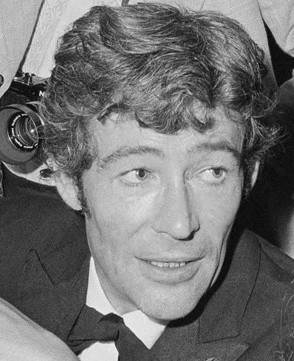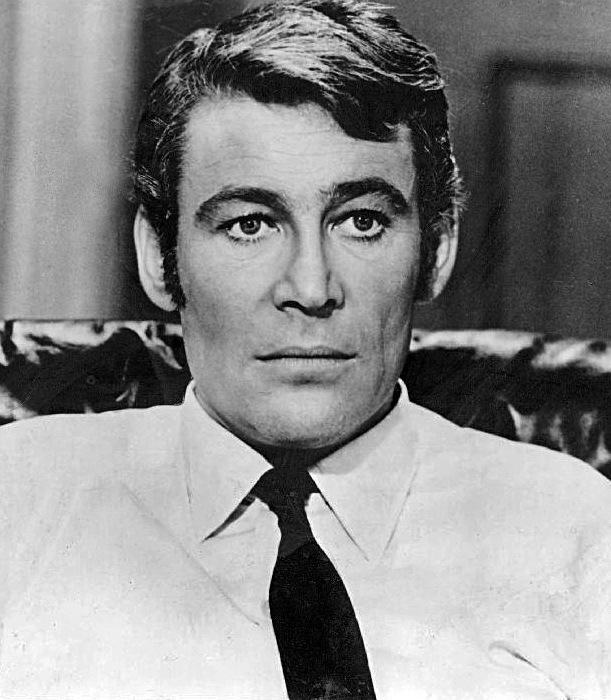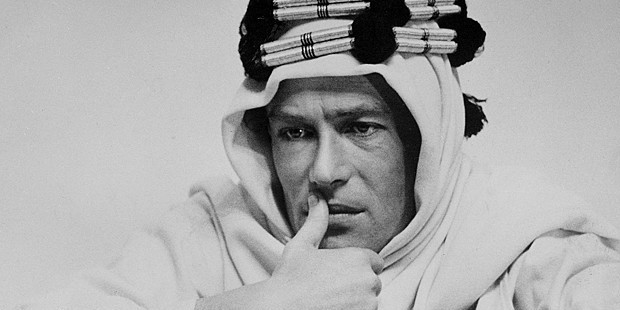Peter O'Toole
Peter O'Toole

Peter Seamus O'Toole, born on August 2, 1932, was a prominent English stage and film actor. He began his journey in acting by attending RADA (the Royal Academy of Dramatic Art), after which he started working in theater. O'Toole gained acclaim as a Shakespearean actor at the Bristol Old Vic and with the English Stage Company.
In 1959, he made his West End debut in The Long and the Short and the Tall and later portrayed the title role in Hamlet in the National Theatre's inaugural production in 1963. O'Toole became known not only for his talent on stage but also for his extravagant and often tumultuous lifestyle offstage.
His film debut came in 1959, and he rose to international fame portraying T. E. Lawrence in Lawrence of Arabia (1962), earning his first Academy Award nomination for Best Actor. He received seven more Oscar nominations throughout his career, including for his roles as King Henry II in Becket (1964) and The Lion in Winter (1968), among others. Despite these nominations, O'Toole never won an Oscar, holding the record for the most acting nominations without a win, tied with Glenn Close. However, in 2002, he was honored with the Academy Honorary Award for his exceptional contributions to cinema.
O'Toole's accolades include four Golden Globe Awards, one BAFTA Award for Best British Actor, and one Primetime Emmy Award. His diverse performances spanned various genres and included memorable roles in films such as What's New Pussycat? (1965), How to Steal a Million (1966), Supergirl (1984), The Last Emperor (1987), Troy (2004), and as the voice of Anton Ego in Pixar's Ratatouille (2007).
Peter Seamus O'Toole was born on August 2, 1932, to Constance Jane Eliot (née Ferguson), a Scottish nurse, and Patrick Joseph "Spats" O'Toole, an Irish metal plater, football player, and bookmaker. O'Toole's exact birthplace and date were uncertain, as he claimed to have accepted August 2 as his birth date but had birth certificates from both England and Ireland. However, records from the Leeds General Register Office confirmed his birth at St James's University Hospital in Leeds, Yorkshire, England.
He had an older sister named Patricia and spent his early years in the south Leeds suburb of Hunslet. O'Toole's family traveled extensively during his childhood, spending five years touring major racecourse towns in Northern England. Raised in the Catholic faith of his father, O'Toole attended St Joseph's Secondary School in Hunslet, Leeds, during the early years of the Second World War. Reflecting on his schooling, O'Toole expressed fear of the nuns who taught him but noted changes in their demeanor over time.
After leaving school, O'Toole worked as a trainee journalist and photographer for the Yorkshire Evening Post before being called up for national service in the Royal Navy as a signaller. During his service, he expressed his desire to pursue poetry or acting when asked by an officer. He attended the Royal Academy of Dramatic Art (RADA) from 1952 to 1954 on a scholarship after being rejected by the Abbey Theatre's drama school in Dublin due to his inability to speak Irish. At RADA, he was part of a notable class that included Albert Finney, Alan Bates, and Brian Bedford, although they were not highly regarded at the time.
In the late 1950s, O'Toole began his theatrical career, earning recognition as a Shakespearean actor at the Bristol Old Vic and with the English Stage Company. He made his television debut in 1954, portraying a soldier in an episode of The Scarlet Pimpernel. From 1956 to 1958, O'Toole was based at the Bristol Old Vic, where he appeared in a variety of productions, including King Lear, The Recruiting Officer, Major Barbara, Othello, and The Slave of Truth.
During this period, O'Toole showcased his versatility on stage, portraying characters such as Henry Higgins in Pygmalion, Lysander in A Midsummer Night's Dream, and Jimmy Porter in Look Back in Anger. He also tackled classic roles like Hamlet, and participated in productions of The Holiday, Amphitryon '38, and Waiting for Godot. Notably, his performance as Tanner in Shaw's Man and Superman became a recurring role throughout his career.
Simultaneously, O'Toole continued to make appearances on television, featuring in episodes of Armchair Theatre and BBC Sunday-Night Theatre. He made his London debut in the musical Oh, My Papa. However, it was his role in the play The Long and the Short and the Tall at the Royal Court Theatre in 1959 that propelled him to fame on the West End. Directed by Lindsay Anderson, the production earned O'Toole the Best Actor of the Year award for his performance.:max_bytes(150000):strip_icc():focal(149x0:151x2)/peter-otoole-300-2-4fa3f4e48de24fa0aead954ae8a11b1b.jpg)
Entering the 1960s, O'Toole's career gained momentum. He appeared in Disney's Kidnapped (1960) and The Savage Innocents (1960) alongside Anthony Quinn. Additionally, he performed in Siwan: The King's Daughter for television with his then-wife, Sian Phillips. O'Toole also had a successful nine-month season at the Royal Shakespeare Company in Stratford, showcasing his talents in productions of The Taming of the Shrew, The Merchant of Venice, and Troilus and Cressida.
Despite opportunities in film, O'Toole remained committed to theater, emphasizing the importance of performing at Stratford. However, he also ventured into cinema, starring in The Day They Robbed the Bank of England (1961) and appearing in several episodes of the TV series Rendezvous. Although he lost the role in the film adaptation of The Long and the Short and the Tall, it did not deter his rising star in the entertainment industry.
In November 1960, O'Toole landed his breakthrough role as T. E. Lawrence in Sir David Lean's epic film Lawrence of Arabia (1962), a part that Albert Finney had reportedly turned down. This portrayal catapulted O'Toole to international fame and earned him his first Academy Award nomination for Best Actor. He also received the BAFTA Award for Best British Actor for his remarkable performance. O'Toole's depiction of Lawrence was hailed as one of the greatest performances in cinema history and was ranked number one on Premiere magazine's list of the 100 Greatest Performances of All Time. In 2003, the American Film Institute honored Lawrence as portrayed by O'Toole as the tenth-greatest hero in cinema history.
Following his success in Lawrence of Arabia, O'Toole played Hamlet under the direction of Laurence Olivier in the premiere production of the Royal National Theatre in 1963. He also appeared in the play Baal at the Phoenix Theatre.
O'Toole had aspirations of forming a production company with Jules Buck even before his breakthrough in Lawrence of Arabia. In 1961, they announced the establishment of their company, Keep Films (also known as Tricolor Productions), with plans to produce a film starring Terry-Thomas titled Operation Snatch. Although the film was not made, their collaboration resulted in the production of Becket (1964), in which O'Toole portrayed King Henry II opposite Richard Burton. The film was a financial success and marked the beginning of a fruitful partnership.
Following Becket, O'Toole and Buck embarked on various projects, including Lord Jim (1965), based on the novel by Joseph Conrad and directed by Richard Brooks. They also intended to produce a biopic of Will Adams and a film about the Charge of the Light Brigade, although these projects did not materialize. Instead, O'Toole starred in the successful comedy What's New Pussycat? (1965), alongside Peter Sellers, taking over a role originally intended for Warren Beatty.
In addition to his film work, O'Toole returned to the stage with Ride a Cock Horse at the Piccadilly Theatre in 1965. He also appeared in How to Steal a Million (1966) with Audrey Hepburn, The Bible: In the Beginning... (1966), and Juno and the Paycock and Man and Superman at the Gaiety Theatre in Dublin in 1966. He reunited with Omar Sharif in The Night of the Generals (1967), produced by Sam Spiegel. O'Toole continued his versatile career with roles in television productions like the adaptation of Noël Coward's Present Laughter in 1968 and a cameo in Casino Royale (1967).
References
- "O'Toole's claims of Irish roots are blarney". Irish Independent. 28 January 2007.
- a b "Four 'Hellraisers,' Living It Up In The Public Eye". NPR. Retrieved 22 March 2020.
- a b "To Peter O'Toole, whose remarkable talents have provided cinema history with some of its most memorable characters". 75th Academy Awards. Kodak Theatre: The Academy of Motion Picture Arts and Sciences. 23 March 2003 [2002]. Retrieved 6 February 2021.
- ^ O'Toole, Peter. Loitering with Intent: Child (Large print edition), Macmillan London Ltd., London, 1992. ISBN 1-85695-051-4; pg. 10, "My mother, Constance Jane, had led a troubled and a harsh life. Orphaned early, she had been reared in Scotland and shunted between relatives;..."
- ^ "Peter O'Toole Dead: Actor Dies At Age 81". Huffington Post. 15 December 2013. Retrieved 19 December 2013.
- ^ "Peter O'Toole profile at". Film Reference. 2008. Retrieved 4 April 2008.
- ^ Murphy, Frank (31 January 2007). "Peter O'Toole, A winner in waiting". The Irish World. Archived from the original on 9 May 2015. Retrieved 4 April 2008.




















